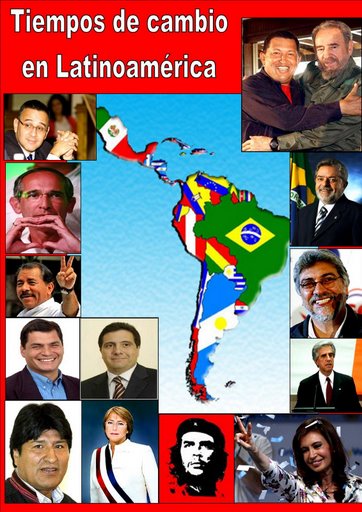We kept a packed schedule, splitting our time between Bogota and the conflict-torn region of Cauca, meeting with 14 different groups including: indigenous councils, campensino cooperatives, human rights defenders, labor leaders, victims of terror and displacement, the Colombian military, and the US Embassy.

| We met with Aida Quilcue, leader of the Association of Indigenous Councils of Northern Cauca (ACIN) and wife of Edwin Legarda. Edwin was assassinated by the Colombia military in December, 2008. Several weeks before we met with Aida, an attempt had been made on her daughter. (Photo: Associated Press) |
The situation in Colombia, a region in intense conflict for nearly 50 years, is complex and one can't do justice to it in a few short paragraphs. Human rights defenders, community leaders and labor leaders are all under grave threat in Colombia. Those speaking against the state are frequently labeled terrorists and guerrillas- killed and disappeared. The government is proven to be involved in the phenomena of "false positives", assassinating and then dressing innocent victims as FARC guerrilla. Right-wing paramilitary groups with ties to government officials and transnational corporations, such as Chiquita, have caused such terror and death that Colombia is now the country with the highest number of internally displaced people in the world.
The timing for developing an awareness of today's Colombia is important, with the Obama administration considering Colombian Free Trade despite the shocking human rights record of the Colombian government and current Uribe administration. There are many great Latin-American news services, like the high quality LADB University of New Mexico news digests we provide to Resource Center Members, and I also like to stay on top of NACLA (journalistic) and Upside Down World (more grassroots).
| A Franciscan working with the Campesino Movement of Cajibio (MCC) sets out photos of those killed in several massacres around a chalk drawing of the region of Cauca. (Photo: Jason Stone ) |
Colombia is certainly not the only hot spot right now. In Peru, indigenous groups protesting the intrusion of transational mining corporations in their territory have been violently oppressed. In Honduras, democracy itself is under attack, with a right-wing coup d'etat and weak U.S. response.
Of course, here at home things are less than perfect. Latinos face systemic discrimination fueled by anti-immigrant sentiment born from ignorance of the global economy that uproots jobs in Latin-America. We are destroying families in the U.S. because of our collective inability to fix a broken immigration system.
Wow! As you can see, we've got a lot of work to do!
In Colombia we spent many hours hearing the testimony of displaced families, victims of torture, and sons and daughters of assassinated community leaders. Rather than leaving me depressed, my time in Colombia renewed my sense of duty and power to make a difference.
Here at the Resource Center we believe we have a role as a change agent both locally and internationally. We have to be smart about not taking on too much at once, and I hope you see method to our new beginnings.
The first step was to get our Language and Cross-Cultural Education programming up and running, and that has been very successful. The second step was the development of the Latino Voices program, as a form of pro-immigrant advocacy. With about 250 people each week now passing through the Resource Center for various classes or events, we're strategizing on next steps in program development.
If you're not already a member or contributor, I hope you will consider becoming one. We are doing very important work today, but the potential for us to help connect the local with the global is huge.
Approximately 30% of our event participants are Resource Center members. If you’re already a member or donor, thank you! If you’re not, know that as little as $5/month will help maintain the Resource Center as a vital community asset! And when you support the Resource Center, you are also supporting our partner, Witness for Peace, to whom we provide free office space.

No hay comentarios:
Publicar un comentario